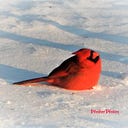Trees for Street Planting
Species used as street trees in Mediterranean-type climates.
This is a list of trees that have been used as street trees, it is not a recommended list, the reader must do their own research and investigate the planting site before choosing any species.
Some of the larger trees in this list may be better described as boulevard trees being too large for suburban streets.
Angophora hispida synonym Angophora cordifolia dwarf apple-myrtle, 8 to 15 feet, 3 to 5m tall, an attractive tree, has opposite, stalkless long heart-shaped leaves, white underneath.
A lot of cream-white flowers in summer. Suitable for dryer areas. Australian tree from New South Wales.
Two other beautiful Angophora species are commonly grown for parks and highways, they are too large for streets.
Angophora costata smooth bark apple-myrtle, 40 to 80 feet, 12 to 24m tall. It can be identified by its 3 to 5 inches, 7 to 12cm long leaves, glossy, in opposite pairs with a petiole, a leaf stalk, and smooth bark.
Angophora floribunda rough bark apple-myrtle, similar to A. costata but with rough bark.
Callistemon ‘Harkness’ the Gawler hybrid bottlebrush, 8 to 15 feet, 3 to 5m tall, is a very popular and attractive tree in flower.
Believed to be a naturally occurring hybrid between two Callistemons, Callistemon rugulosus, and Callistemon citrinus.
It was discovered in a punnet of seedlings Mr. Harkness brought home from Adelaide, South Australia in 1937, he lived in the nearby town of Gawler. All specimens since have been grown from cuttings.
Callistemon ‘Harkness’ flowers prolifically in spring and summer and has long dense and clustered red bottlebrush-shaped flowers.
Citrus limon ‘Lisbon’ Lisbon lemon, 8 to 12 feet, 3 to 4m high, better in hot areas but very adaptable. Has some thorns, bears fruit over a long time mostly in winter. Originally from Portugal.
Eucalyptus erythrocorys red cap gum, a small irregular-shaped tree from 10 to 25 feet, 3 to 8m high, brightly colored red caps and large bright yellow flowers, flowers at different times through winter and spring.
Can be sensitive to frosts when young, prefers coastal sites and heavy limestone soil, from Western Australia.
Eucalyptus torquata coral gum, a small upright, fast-growing tree from 8 to 20 feet, 3 to 10m high, red or pink flowers in summer.
Highly ornamental buds and flowers, distinctive corrugated buds, from W.A.
Eucalyptus spathulata swamp mallet, 18 to 30 feet, 6 to 10m tall, an attractive smooth-barked gum with very narrow leaves.
Unusual cylindrical bud caps, from W.A.
Lagerstroemia indica pink crepe myrtle, deciduous tree, 8 to 12 feet, 2 to 4m high. Makes a show of pink flowers in late summer, grown also for its attractive bark.
Very popular tree, many varieties are of varying sizes and with different flower colors from white to red.
Lagerstroemia indica flowers on new growth, so prune if required after flowering or in winter, hard pruning will reduce flowering and stunt the vigor of the tree. From China.
Melia azedarach White cedar, deciduous Australian tree, 25 feet, 8m, widely used as a street tree.
Lilac flowers in spring, with pale brown berries in summer. Fallen berries can be a nuisance if planted over paths.
Malus angustifolia syn.Malus ioensis southern crab apple, deciduous tree, to 20 feet, 6m tall. Large pink, fragrant flowers in spring.
Autumn/fall foliage color, distinguished by young shoots covered in woolly hairs.
Sophora japonica pagoda tree, deciduous tree, 20 to 50 feet, 6 to 15m tall.
Long pinnate leaves, cream flowers in summer. From China and Japan.
Reference:
Lord, E. E. (1978). Shrubs and Trees for Australian Gardens (4th Ed.). Adelaide, S.A.: Lothian Publishing Co Pty Ltd. Book.

